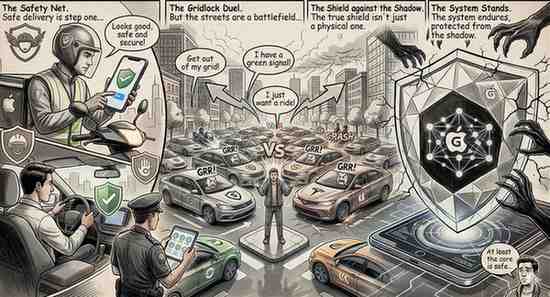
Enhancing Professional Skills through Correspondence Courses: A Smart Guide to Career Growth
In today’s fast-paced, competitive world, it’s no longer enough to just hold a degree—to truly stand out, professionals need to be constantly upskilling and adapting to the ever-evolving demands of the job market. Whether you’re looking to advance in your current field, switch careers, or simply keep up with new technologies, enhancing professional skills is no longer optional—it’s essential.
But here’s the game-changer: Correspondence courses are making it easier than ever to level up your skills without hitting pause on your career, your personal life, or your bank account.
Let’s dive into why enhancing professional skills should be your top priority, and why correspondence courses are the smart, efficient, and affordable way to do it.
1. Why Enhancing Professional Skills Is Non-Negotiable
The world isn’t slowing down, and neither is the job market. In fact, 63% of employees worldwide believe that upskilling is critical to their professional development (LinkedIn Skills Report, 2023). The problem? Most professionals feel like they don’t have enough time or resources to pursue further education.
This is where skills enhancement comes in. Whether it’s learning data analytics, gaining advanced project management techniques, or mastering digital marketing strategies, staying ahead of the curve is a must. Up-to-date skills not only make you more valuable to your current employer but also increase your employability across industries.
In a nutshell: If you’re not upgrading your skills, you’re falling behind.
2. Why Correspondence Courses? The Affordable and Flexible Option
So, how can you manage to upskill without quitting your job, taking loans, or sacrificing personal time? The answer: correspondence courses.
Here’s why they’re a game-changer:
- Flexibility for Busy Professionals: Work, family commitments, and personal time often make traditional full-time courses feel impossible. Correspondence programs fit into your schedule, not the other way around. Whether you’re studying during lunch breaks, evenings, or weekends, you choose when and where to learn.
- Affordable Without Compromise: Full-time courses can drain your bank account and leave you financially stretched. Correspondence courses provide high-quality education at a fraction of the cost—with many programs costing just a few thousand rupees compared to lakhs for traditional degrees. Your skills aren’t the only thing getting a boost—your wallet stays intact too.
- Learn at Your Own Pace: Unlike rigid classroom schedules, correspondence courses offer the luxury of learning at your own pace. Whether you’re a fast learner or need extra time to master concepts, these courses adjust to your speed and style of learning, allowing for deeper understanding and retention.
Quick Fact: Did you know IGNOU offers over 350 distance learning programs that cater to everything from finance and business to education and healthcare? This wide variety ensures that no matter your career path, there’s a skill upgrade waiting for you.
3. Skill Enhancement Through Correspondence: Real-World Benefits
So, what are the real-world benefits of enhancing your professional skills through correspondence courses? Let’s break it down:
- Job Readiness: Distance education is industry-focused. Many correspondence programs are specifically designed to equip you with the skills employers need right now. Whether it’s project management, graphic design, or entrepreneurship, the programs are tailored to give you hands-on knowledge you can use immediately.
- Career Growth and Promotions: Skills enhancement through correspondence courses shows that you’re committed to your career and ready for more responsibility. Many professionals who complete these courses report faster promotions, higher salaries, and more leadership opportunities.
- Career Switching: Thinking about switching industries but worried about a lack of qualifications? Correspondence courses make it easy to pivot. Learn a new set of skills in fields like digital marketing, data analysis, or HR management, and transition smoothly into an entirely different career—without going back to square one.
4. Cutting-Edge Courses for Today’s Workforce
Here’s the beauty of correspondence courses—they’re not stuck in the past. These programs keep pace with today’s fast-moving industries and provide up-to-date content that aligns with the latest trends in the job market.
- In-demand Skills: Courses in artificial intelligence, digital marketing, cloud computing, and data science are in high demand. Correspondence programs ensure you’re getting the latest skills that directly impact your career prospects.
- Practical Knowledge: Many courses go beyond theory. Whether you’re learning project management softwarelike JIRA or mastering the ins and outs of SEO, correspondence programs equip you with practical, hands-on knowledge that employers love.
5. Career Advantages: Networking, Flexibility, and Growth
One of the major hurdles to professional development is networking. But with many correspondence courses, networking is made easy through online forums, webinars, and virtual meetups with instructors, industry experts, and fellow learners.
Whether you’re looking to connect with people in your industry or expand your business knowledge, correspondence programs connect you with a global network of professionals, providing insights and perspectives that wouldn’t be available in a traditional classroom.
Networking Tip: Many correspondence programs provide exclusive access to alumni networks, which can help connect you with potential employers, clients, and collaborators.
6. Busting the Myths: Are Correspondence Courses Really Worth It?
Let’s address the elephant in the room: Do employers value correspondence education?
Absolutely. In today’s job market, it’s less about where you studied and more about what skills you bring to the table. Employers are looking for practical knowledge, problem-solving abilities, and industry expertise—qualities that distance learning excels in providing.
Fact: According to a study by the Indian Ministry of Education, the number of working professionals pursuing distance learning programs in India increased by 55% in the past five years. This surge speaks volumes about the growing acceptance of distance education in the professional world.
7. Ready to Level Up? Your Future Starts with Correspondence Courses
Enhancing your professional skills through correspondence courses isn’t just about gaining more knowledge—it’s about unlocking career opportunities and positioning yourself for success. Whether you want to advance in your current field, switch careers, or start your own business, these courses provide the skills you need at a cost you can afford, with the flexibility that modern life demands.
So why wait? The future of learning is here, and it’s smarter, cheaper, and more accessible than ever before. Start your journey today, and let your career thrive without compromise.




